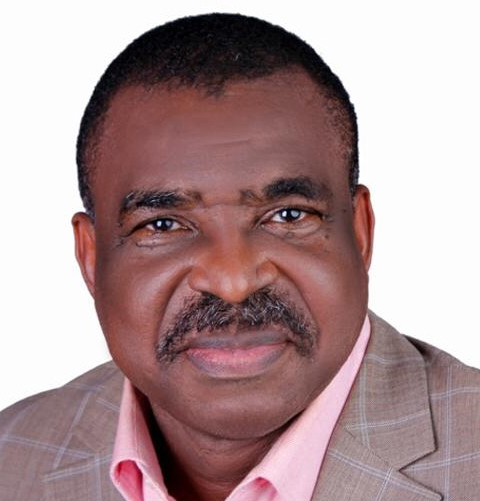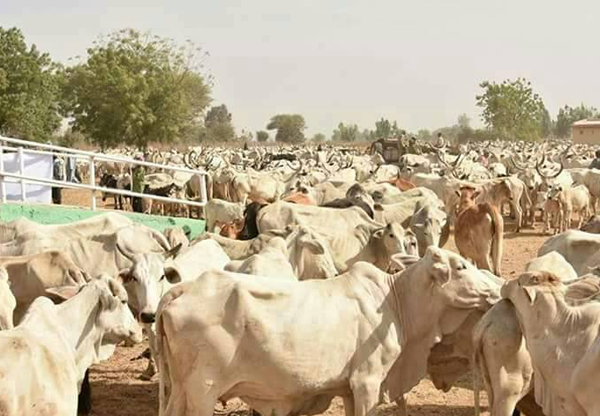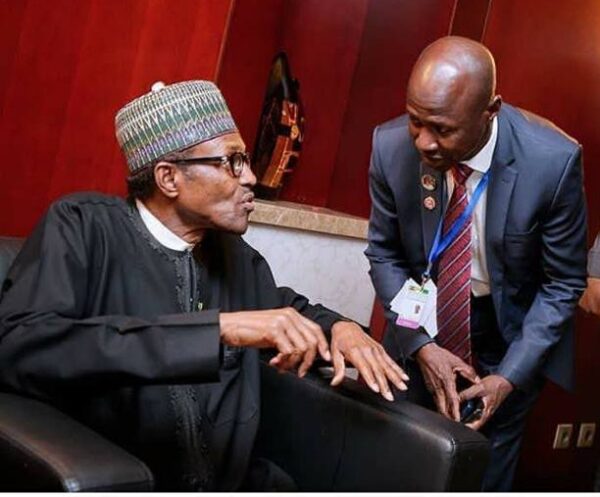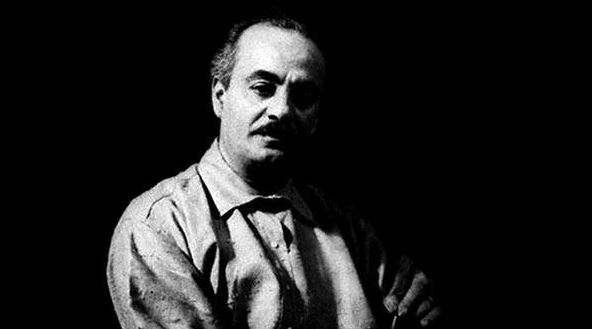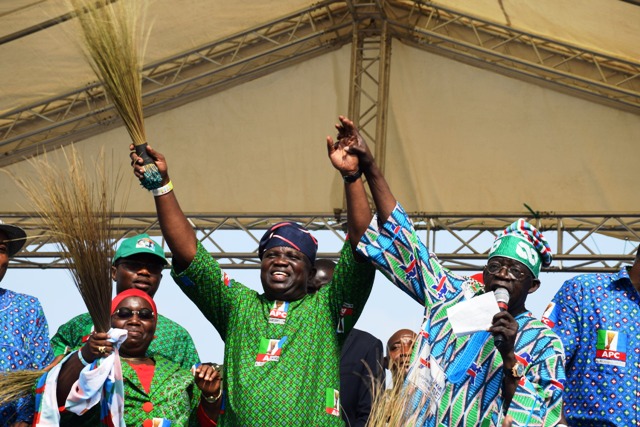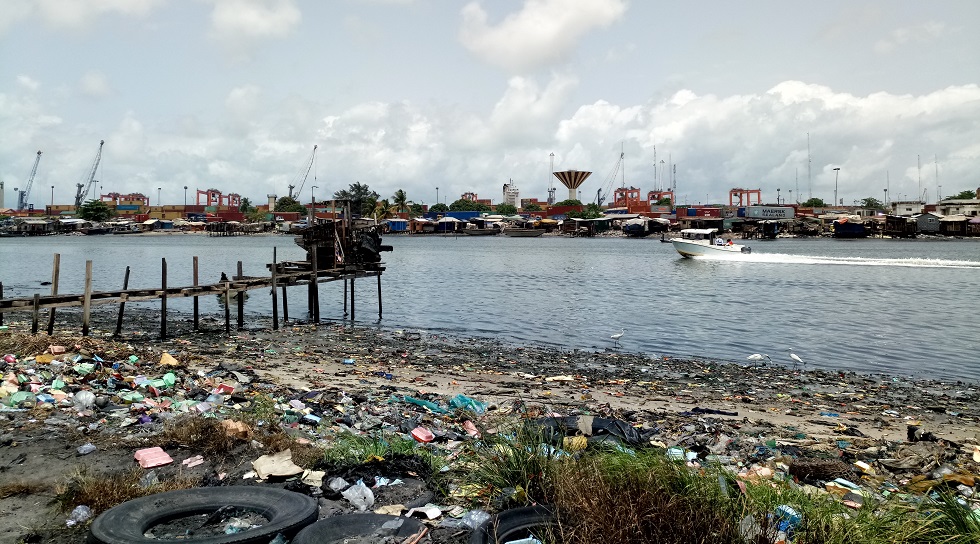As Nigerians, our common goal should be shared prosperity. Since herdsmen are part of Nigeria, we must all do everything to integrate them into the loop of a prosperous Nigeria.
And one of the most appropriate and universally acknowledged pathway to prosperity, as validated by Bill Gates, the world’s richest man and founder of Microsoft is through innovation.
Not just by harnessing natural resources like oil/gas, solid minerals or engaging in animal husbandry in a crude method , but by leveraging science and technology in the ways production of goods or service delivery are carried out.
Arising from the above, to thrive in this new age of technology, as individuals and a nation, we must set our eyes on innovation.
Advertisement
It may not be the sort of high technology that was introduced by Mr Gates through Microsoft that earned him, at one time, the title of the richest man in the world.
But even improvements that are a few notches above crudity, such as changing from nomadic herdsman-ship to ranching, could make a significant difference in the life of a nation such as Nigeria.
As part of his philanthropic endeavors, Mr Gates recently identified Nigeria as a country with enormous potentials to lead Africa through the development of her sizable and young but unskilled Human Resources.
Advertisement
With a burgeoning youths population estimated to be in excess of 60% in a country of about 180m people, Mr Gates identified Nigeria as the most viable launch pad for Africa’s development and extended a hand of fellowship and partnership towards helping harness the potentials.
But characteristically, some top apparatchiks in govt who don’t share Mr Gate’s point of view, ostensibly because of their restricted worldview constrained by some primordial sentiments, rebuffed him.
Fortunately, prosperity for all Nigerians does not solely depend on govt, of which it is incumbent to provide the enabling environment for socioeconomic growth and development .
Rather, harnessing of prosperity potentials should be mainly driven by the private sector.
Advertisement
At this juncture, it is worth emphasizing that Steve Job/Tim Cook of Apple, Bill Gates of Microsoft, Mark Zuckerberg of Facebook, Larry Page of Google and Elon musk of Tesla amongst other multi billionaires who got rich through technology developed in the USA, now being sold to the rest of the world, did not become wealthy on account of govt patronage. But govt created the enabling environment for the innovation and introduction of products and services with universal appeal by the inventors which has also made the US very rich .
Put simply the prosperity of the aforementioned American entrepreneurs was made possible through creative ingenuity facilitated by govt which only created the enabling environment.
So lbrahim Gambari said it best when he recently posited that the solution to herdsmen and farmers clashes with the catastrophic fall outs evidenced by monumental loss of lives, does not rest on govt alone , but it needs to be driven by the private sector as well.
In aligning with Gambari, who was a United Nations, UN under Secretary General and as such, a top diplomat that has engaged in conflict resolutions all over the world , its about time Nigerians stopped considering the herdsmen killings and the colossal collateral damage to lives and properties from the narrow prism of ethnicity and religion.
Advertisement
Rather, govt should start viewing it from the wider optics of socioeconomic challenge which needs practical solution. The search for solution should be devoid of ethnic or religious emotional attachments but driven by the objective of converting an existential crisis into an economic opportunity. In my considered opinion, that is the clearest pathway to a sustainable solution to the menace of wanton killings by herdsmen that is unduly sapping the energy of the country’s security agencies.
It does not help that our President, Muhammadu Buhari keeps attributing the human carnage arising from herdsmen killings in the Sahel and plateaus areas of our country to the drying up of lake chad and influx of displaced Libya trained militia, because it is way beyond that.
Advertisement
Those may be the primary or remote causes of the herdsmen/farmers clashes , but the crisis has become hydra headed and govt authorities must stop living in denial by failing to recognize that the politics of religion and ethnicity which has polarized the nation is the current energy fueling the security chasm.
For instance, was the lake Chad not drying up and was Libyan militia not existing before the advent of this administration? Why were the herdsmen not as ferocious and as emboldened as they are now?
Advertisement
I understand that the cattle Fulani herdsmen and local indigenes conflicts in the Sahel and plateau is as old as the migration of the Fulani from Fouta Djalon mountains in west African country of Guinea centuries ago.
Over the years, after initial armed conflicts, the Fulani migrants and their Hausa hosts learnt to live in harmony with the neighboring Tiv, Jukun, Idoma, Berom and Angas in the middle belt and Sahel regions of northern Nigeria.
Advertisement
The prevailing tension and animosity never degenerated to the current level, except during the jihad.
Obviously, something has gone awry in the polity in the past three and half years and the reason can be drilled down to what l would like to term leadership miasma.
It may not be deliberate, but it is possible that President Buhari’s body language is sending the wrong signal to the herdsmen.
For instance, at one point our president and commander-in-chief of the armed forces of Nigeria expressed concern that the herdsmen killings were politically motivated. He then laid the blame on saboteurs from the opposition parties whom he accused of trying to destabilize his govt.
But like the earlier attribution of the killings to climate change and Libyan militia, the claim that the killings were politically motivated has been without conclusive evidence as it should.
Thereafter, Mr President, seemed to have reversed himself in the course of his recent trip to China by reportedly attributing the killings once again to climate change and blaming the media for orchestrating the violence.
That’s the same line our president toed when he was hosted by the USA president, Donald Trump in the White House earlier in the year;while he was attending African Union meeting in Ethiopia, also in the course of his last visit to the UK.
It would appear as if Mr President has two views on herdsmen killings- one for his international audience and another for the local audience.
For his international audience, climate change and Libyan militia are the culprits and for Nigerians, he insists that the killings by herdsmen is motivated by political opponents who want to destabilize his govt.
Assuming l’m correct in my assessment , the approach is confusing and would make finding a solution very difficult, if not impossible.
As such, mr president must make himself clearer.
And that’s a task which Presidential spokesmen – Femi Adesina and Garba Shehu – must redouble their efforts to achieve, so that majority of Nigerians would stop misunderstanding their president.
There is no better evidence of a disconnect between the current leadership and majority of Nigerians than the polarization of the country along ethnic and religious lines that now defines our country .
Is the indisputable fact that a large proportion of Nigerians feel alienated by the leadership not chaotic?
Is that not the justification for the threat of secession by the Igbos via the action of Independent People Of Biafra, IPOB that left a bad taste in the mouth of both the secessionists and govt which has been accused of human rights abuse in light of the deadly force applied in dealing with the agitators ?
In my estimation, (which hopefully is not naive) polarizing the country along sectarian fault lines is an athetesis to what President Buhari stands for as reflected by his oft requoted inaugural day speech “l belong to no one, l belong to everyone”.
Without further equivocation and in the light of the foregoing, the presidency must elect to make some progress and stop considering the national malady of herdsmen killings from the narrow perspective of climate change and fallouts of Libyan militia only.
The havoc being wreaked on unarmed Nigerians by herdsmen militia who are systematically hewing down and hacking to death fellow Nigerians is a socioeconomic issue that should task the creativity of our development economists and strategists.
It is based on the strength of the above precept that l’m proposing a concept that l would like to refer to as FulaniCapitalism as a viable solution to the seemingly intractable herdsmen killings that have practically put our country in perpetual mourning mode as hardly any day passes by without deaths arising from killer herdsmen.
Before proceeding to the nitty gritty, permit me to introduce you to the concept of FulaniCapitalism which is a variant of Africapitalism-a pseudo or hybrid business/social investment model being promoted by Tony Elumelu, chairman of HEIRS Holdings.
As earlier stated, the underpinning philosophy behind FulaniCapitalism is similar to the raison det for Africapitalism, which is the creation of job opportunities for Africans by Africans in ways that the host communities of the business are not exploited but empowered by the presence of the corporate entity.
A sort of symbiotic relationship between entrepreneurs and host communities.
FulaniCapitalism is envisaged to catalyze and drive the concept of cattle ranching that would discourage the current nomadic practice of animal husbandry. It is so named because it is the Fulani that are undeniably, inherently the predominant pastoralists in Nigeria.
The strategic investment in ranches by the well heeled or deep pocket Fulani men and women is to facilitate the change of the lifestyle of the nomadic herdsmen and offer them more reliable as well as better return on their investments and efforts.
Given the strategic role that cattle ranches, (as opposed to nomadic animal husbandry) can play in stemming the ugly tide of human carnage arising from herdsmen killings , investing in ranches (confining animal husbandry within a farming space ) by successful men/women of Fulani extraction needs no further elucidation because it is both a social and economic investment.
By this, l mean that rather than wait for govt to set up ranches, Fulani men and women of means (who are in their legions) should make deliberate and conscious efforts to invest in ranches which would serve as sanctuaries for cows and those who tend them because it is financially rewarding.
Aside the financial returns , it would serve as a veritable means for safeguarding the livelihood of their people whose mainstay is animal husbandry,and which they are still practicing in the same nomadic and primitive manners that their forebears did centuries ago and now constituting a threat to peace and security.
So far the balance of loss of human lives is currently in favor of herdsmen who are rampaging all over the country, particularly the Sahel and plateau (for their green pastures) and leaving sorrow, blood and grief in their trail.
But the first mover advantage which the herdsmen are currently enjoying would not be perpetual, if and when their victims backs eventually get literally pushed against the wall and they begin to fight back.
In light of the frightening prospect of the conflict escalating to unimaginable proportions , how do we avert what seems like an inevitability if the killings by herdsmen go on unabated?
I’m convinced that Nigeria can move from the current state of chaos to community through a strategy of shared social investments strategy. That’s assuming we are ready to change how animal husbandry is practiced by leveraging science, technology and capitalism.
That is a case that I’ve tried to make through the FulaniCapitalism initiative because as the saying goes, ‘a stitch in time, saves nine’.
Although Hausa/Fulani men are known to be great entrepreneurs, (Aminu Dantata, lsiaku Rabiu etal who were great merchants of yore) they seem to be under estimating the money spinning or commercial potentials of their cattle assets, if properly harnessed through innovative and technological ways.
Many of us tend to have missed an interesting point of fact which is that it is on account of its cattle business (dairy) being whittled down that Canada is opting out of the USA president, Donald Trump’s reformed North American Free Trade Agreement, NAFTA.
With the new arrangement, Canada’s dairy business derived from cattle is threatened and it is therefore rejecting the deal.
So cattle business is big business.
Conversely, in Nigeria where we are blessed with the abundance of cattle and which is supposed to be a blessing, it has become the source of strife and violence. That’s simply because we are yet to apply science, technology and capitalism in harnessing the huge potentials inherent in animal husbandry.
Why for instance can’t fresh milk from the ranches in the north be served every morning not only in northern cities like Abuja etc but in major Nigerian cities in the far south like Lagos, lbadan, Benin, Asaba, Warri, Enugu, Calabar and Port Harcourt?
With the ongoing resuscitation of the railways across Nigeria by govt, that’s highly possible when pasteurized containers are included. Why are the cold cuts and beef stakes from the numerous hyper markets now dotting Nigerian landscape imported from South Africa and Europe?
Switzerland, a country in Europe that we all envy is apart from being the home of fabulous wrist watches and safe haven for slush funds, is also famous for dairy based chocolates.
Many years ago, research institutions to enhance the harnessing of economic activities endemic in certain geographic zones of Nigeria were established.
I’m referring to the International Institute For Tropical Agriculture, IITA established 1967 in lbadan, Oyo State and the Nigerian Veterinary Research Institute,NVRI set up in Vom, plateau state in the 1920s.
There are other such research institutes all over the country , such as the oil palm research institute in Ajagbodudu, near Benin city, Edo State. But for the purpose of this article, allow me focus on only two dedicated to agriculture, particularly -cash crop farming and animal husbandry .
While IITA is focused on research that would create innovations on cash crops such as cocoa, cassava etc common in the south west and Midwest , the Veterinary Institute in Jos is meant to pursue research into how higher productivity and improved yield from the abundant cattle in the north, can be better achieved.
If you ask me, in the case of NIVR, Vom established nearly 100 years ago, the purpose for setting up those institutions have remained largely unachieved as evidenced by the fact that farming and animal husbandry have not risen above primitive levels as envisioned.
And the culprit that easily comes to mind is resistance to change by Nigerians.
This lack of response to the stimuli of change is perhaps derived from how steeped we are in our ancient cultures which has made us impervious to change. It could also be that not enough effort has been made by way of enlightenment from the research institutions.
In my personal judgement, I would tilt the blame more in the direction of inadequate enlightenment. That’s because the same Nigerian farmers and herdsmen that have remained rooted in their primitive practices have been successfully wooed by cell phones operators like MTN, Glo and Airtel to the extent that farmers and herdsmen now proudly move around with cell phones even in the remotest parts of Nigeria.
Obviously, herdsmen and farmers have now recognized the benefits of telecommunications and ease of marketing their livestock online which the telecom firms pitch to them through public enlightenment leveraging mass communication channels like outdoor, radio and TV advertisements.
With the huge number of cattle in the north, why should dairy based products firms in Nigeria like Nestle, WAMCO, owners of Peak milk, Friesland Campina, Promisador makers of Cowbell milk etc continue to import concentrates from Holland etc when fresh milk can be harvested from cattle in northern Nigeria?
Why can’t they embark on backward integration programs by investing in ranches in the north as govt is currently doing with rice farming?
Obviously, the continuous importation of such items that could be sourced locally, resulting in the unbridled exportation of our scarce foreign exchange, would continue to be the bane of our country, unless strategies to stem the financial hemorrhage such as backward integration through ranching is pursued vigorously.
Is the pressure on Nigerian treasury by importers not the reason the CBN intervenes in the foreign exchange market weekly to stabilize it with hundreds of millions of dollars?
The N220b set aside by CBN (MSME intervention fund) of which a lot was invested in rice farming in several states in the north, including Kebbi as well as Lagos states should also be applied in animal husbandry via introduction of cattle ranches as opposed to sticking to the ancient practice of herding in the 21st century.
Apart from the concept of fulaniCapitalism which l’m advocating, govt should collaborate with the NVRI, Vom to drive the ranching initiative through extension services etc.
According to data from Nigerian Bureau of Statistics,NBS, Nigeria spent about N225b in the first quarter of this year alone importing agricultural products. Ironically, Nigeria’s comparative advantage in international trade is supposed to be in agriculture. Yet, our country spends nearly a quarter of a trillion naira in just one quarter (4 months) importing food from other countries. It’s such a paradox that makes our country look pathetic to close observers.
How can a country that has the potentials to be a net exporter of food be listed amongst nations under the yoke of food insecurity?
Now, about two weeks ago, l wrote and published an article titled “Did Miyetti Allah Cross The Line By Threatening To Forcefully Remove Bukola Saraki As Senate President?”.
And some of my Hausa/Fulani friends took exception to some of the recommendations in the article which is that the nomadic nature of animal husbandry in the north should’ve by now changed to ranching which is more productive, convenient and progressive.
They reduced a candid and development oriented advise aimed at solving an existential challenge which has caused chaos and massive loss of lives/properties to a hate speech.
Well, I would like to leverage the opportunity offered by this essay to remind my concerned Fulani friends that although l cant speak the Hausa/Fulani language, some of them are not more Fulani than l am, because to a some extent, l look like them.
As a news correspondent with Nigerian Television Authority, NTA many years ago, l had the privilege of covering a coronation anniversary/ ceremony involving the then Emir of Kano.
When l was introduced to him, he assumed that l was Hausa/Fulani and spoke to me in the dialect.
Even after he was informed that my name is Magnus and l don’t understand Hausa/Fulani language fluently , he jocularly gave me a nickname, Mustapha.
Over the past 25 years or so, l have cultivated and maintained friendship with Hausa/Fulani men and women from the bottom of the social rung to the top echelon .
As a result, if the Hausa/Fulani has any champion and ambassador in the south, I’m that envoy.
However, that would not stop me from advocating change in the practice of cattle herdsman-ship that has shackled a vast majority of the Fulani over the years, and a current threat to national insecurity in the light of the killings mainly in the Sahel and Plateau regions of Nigeria.
As a development strategist, it is my calling to constantly seek positive evolutions through the dynamics of change from old to new ways of doing things which was the objective of the referenced article and also this one.
Before now, l took upon my self to be one of those who consistently wrote copiously against govt’s opposition to the establishment of indigenous refineries in the Niger delta often referred to as illegal refineries.
The kernel of my argument has always been that the crude refineries were filling a void. Hence each time govt operatives destroyed them, they resurrected somewhere else within a short period. The act of destroying their equipment earned govt more enemies as the operators regarded the destruction of their means of livelihood by agents of govt as actions against their progress.
The avoidable damage to oil installations via militancy is also a fall out of the wrong headed policy that was sold to govt by unscrupulous transnational oil corporations who wanted a monopoly of the business. How would Niger Deltans survive after being stripped of their means of livelihood which is fishing and farming made impossible by the environmental damages arising from oil/gas exploration? In the absence of their traditional means of eking out a living, indigenous oil refining, although carried out in very crude methods, was the only alternative economic activity in the Niger delta hence it continued to thrive despite efforts to stamp it out.
Happily, through the intervention of Vice President Yemi Osinbajo, wise counsel has prevailed and govt is now poised to support indigenous participation in crude oil refining via procurement of modular refineries for the operators who otherwise could not afford it and had to rely on locally assembled contraption Los for literally cooking crude oil.
The good news that $500m loan has now been secured from the Chinese for the purchase of modular refineries for use in the Niger delta is very welcoming.
To me that’s one of the most commendable accomplishments of President Buhari’s recent trip to China because if implemented it would resolve multiple security and economic challenges in the nation’s treasure trove.
Allow me conclude by quoting the philosopher, George Bernard Shaw who posited that “Progress is impossible without change, and those who can not change their minds can not change anything”.
As the govt in power is ostensibly driven and anchored on change, this humble submissions on how to change the narrative of animal husbandry from nomadic cattle herdsman-ship, (the primary cause of the killings generating chaos in our society), to that of ranching in our community, leveraging science, technology and capitalism, should be evaluated for possible adoption.
And for the good of our country and all the numerous ethnic groups and religions, that assessment should be carried out with no sectional sentiments or bias.
Rather, pragmatism as well as national interest should be placed above all other considerations, and as such the overriding principle in choosing what is best for Nigeria.
Onyibe, a development strategist, alumnus of the Fletcher School of Law and Diplomacy , Tufts University, Massachusetts, USA and former commissioner in Delta state government sent this piece from Abuja.
Views expressed by contributors are strictly personal and not of TheCable.
